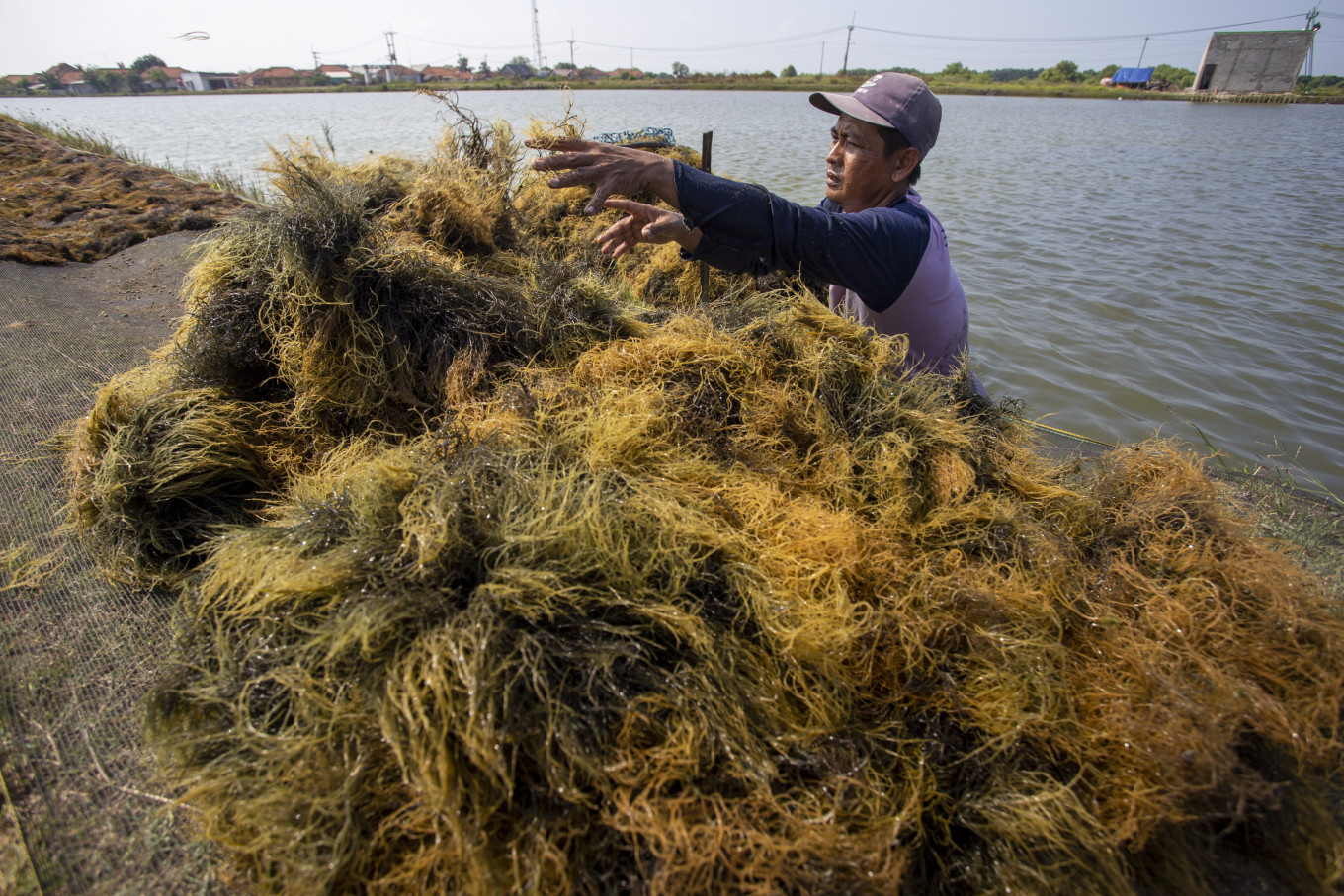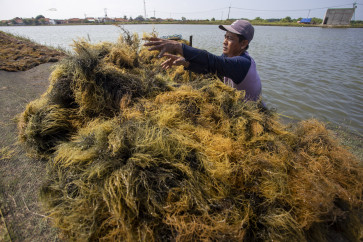Popular Reads
Top Results
Can't find what you're looking for?
View all search resultsPopular Reads
Top Results
Can't find what you're looking for?
View all search resultsBusinesses disgruntled over planned seaweed export ban
Change text size
Gift Premium Articles
to Anyone
T
he government’s plan to ban seaweed exports is expected to hurt domestic producers of the commodity by causing excessive supply and declining prices.
President Joko “Jokowi” Widodo said in November last year that the ban would encourage investment in domestic seaweed processing and thereby help the industry move up the commodity value chain.
Indonesian Seaweed Association (ARLI) chairman Safari Azis said on Friday that the government’s current attempt to ramp up seaweed production without considering market conditions had led to oversupply in the country.
This, coupled with news of a possible export ban, was a driving factor behind the recent decline in seaweed prices, he argued.
“We suggest that the government involve industry players in devising such plans to get a better view of the possible effects on the domestic and the global market,” he told The Jakarta Post on Friday.
The Maritime Affairs and Fisheries Ministry did not immediately respond to the Post’s request for comment.
Indonesia, the world’s second-largest seaweed producer and one of the largest exporters, accounted for around 33 percent of the global market share, according to data from the International Trade Centre’s statistics portal Trade Map.


















